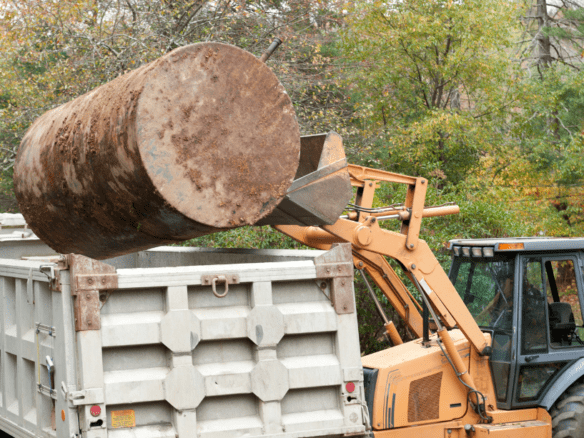When buying or selling a home, one of the crucial steps in the process is the home inspection. It’s a safeguard for buyers to understand the condition of the property and for sellers to address any potential issues that might hinder the sale. But how long does this important procedure take? Let’s dive into the details.
What is a Home Inspection?
A home inspection is a thorough evaluation of a property’s condition, typically performed by a licensed professional. The inspector examines various aspects of the home, from the foundation to the roof, to identify any existing or potential problems.
Key Factors Influencing the Duration of a Home Inspection
Size of the Property
The larger the property, the longer the inspection will take. A small condo might take just a couple of hours, while a large estate could require most of a day.
Age of the Property
Older homes often have more wear and tear, as well as potential issues that need careful examination, which can extend the inspection time.
Condition of the Property
A well-maintained property with few visible issues can be inspected more quickly than one with numerous problems.
Inspector’s Experience and Efficiency
An experienced inspector might complete the job faster without compromising on thoroughness.
Complexity of the Inspection
Homes with unique features or complex systems, such as advanced HVAC setups or solar panels, may require additional time to inspect.
Typical Time Frame for Different Property Types
Single-Family Homes
On average, a home inspection for a single-family house takes about 2 to 3 hours.
Condominiums
Condo inspections are usually shorter, often taking about 1 to 2 hours, since the inspection typically excludes common areas.
Multi-Family Homes
Inspections for duplexes or multi-family properties can take 3 to 5 hours or more, depending on the number of units.
Commercial Properties
These inspections vary widely in duration due to the complexity and size of commercial buildings.
Pre-Inspection Preparation
What Homeowners Should Do
- Ensure all areas of the home are accessible.
- Clean up clutter to allow easy movement.
- Provide any relevant documentation (e.g., repair records).
What Buyers Should Expect
- Plan to be present during the inspection.
- Prepare questions for the inspector.
- Understand that some issues might be uncovered.
The Home Inspection Process
Initial Walkthrough
The inspector starts with a general overview of the property, noting any immediate concerns.
Detailed Inspection
A room-by-room and system-by-system inspection follows, where the inspector uses various tools to check for issues.
Inspector’s Tools and Equipment
Common tools include moisture meters, infrared cameras, electrical testers, and ladders.
Common Areas Inspected
- Foundation and Structure
- Roof and Attic
- Electrical System
- Plumbing
- HVAC Systems
- Exterior (siding, windows, doors)
Post-Inspection Procedures
Review of Findings
After the inspection, the inspector typically reviews the major findings with the buyer on-site.
Reporting
A detailed report is then prepared, usually within a day or two, outlining all findings and any recommended actions.
Follow-Up Actions
Depending on the findings, buyers might negotiate repairs or price adjustments, or in some cases, decide not to proceed with the purchase.
Common Issues Found During Home Inspections
Structural Problems
These can range from minor cracks to major foundation issues.
Electrical Issues
Faulty wiring, outdated systems, and insufficient electrical capacity are common findings.
Plumbing Concerns
Leaks, outdated pipes, and water heater issues are frequently identified.
HVAC Systems
Inspectors often find problems with heating and cooling systems, including inefficiencies and maintenance needs.
Roofing Issues
Damaged shingles, leaks, and poor drainage are typical roofing concerns.
Impact of Home Inspection on Real Estate Transactions
Negotiations
Inspection results can lead to negotiations for repairs or price reductions.
Renegotiation of Terms
Significant issues might require a renegotiation of the terms of sale.
Potential Deal Breakers
Major problems can sometimes lead to the buyer withdrawing from the deal.
Tips for a Smooth Home Inspection
Choosing the Right Inspector
Look for certified, experienced inspectors with good reviews.
Preparing the Property
Ensure all areas are accessible and disclose any known issues upfront.
Being Present During the Inspection
This allows for immediate discussions and clarifications on findings.
FAQs About Home Inspections
How much does a home inspection cost?
Costs vary, but typically range from $300 to $500 depending on the property’s size and location.
Can a house fail a home inspection?
No, homes don’t pass or fail. The inspection simply reveals the property’s condition.
How long does it take to get the inspection report?
Most reports are delivered within 24 to 48 hours after the inspection.
What should I do if major issues are found?
Discuss options with your real estate agent, which might include negotiating repairs or a price reduction.
Is a home inspection necessary for new homes?
Yes, even new homes can have issues that need to be addressed.
Conclusion
Home inspections are a vital part of the real estate process, providing crucial information about a property’s condition. The duration of a home inspection can vary based on several factors, but understanding what to expect can help both buyers and sellers navigate this important step smoothly.







Join The Discussion